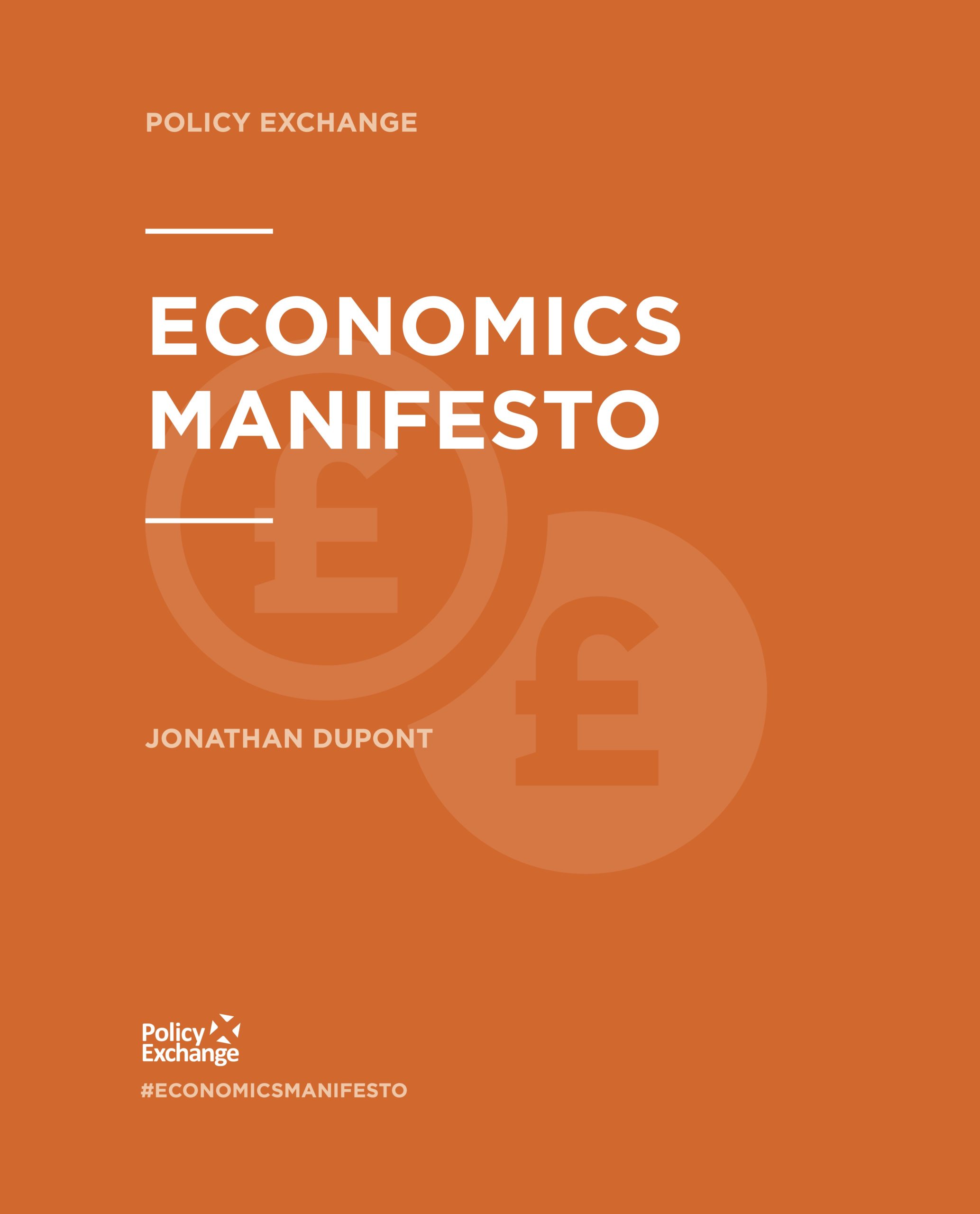
Economics Manifesto 2015
After a decade in which real wages have fallen and unemployment soared, it is no surprise that many people have lost faith in the ability of markets to deliver for them.
In the short term, Britain faces challenges: our productivity is stagnant, our savings too low and the deficit too high.
Nevertheless the long term outlook for our economy remains bright. The combination of markets and technology is the most powerful engine we know to increase prosperity, reduce poverty and create a better world.
In Policy Exchange’s Economics Manifesto, we look at where our economy has been, where it is going – and how the Government can ensure the power of markets benefits everyone by:
Creating the most innovative and competitive economy in the world
Over the last few years, Britain’s economy has prioritised keeping people in work over increasing wages. As the economy recovers, focus will switch back to how we can ensure more rapid growth, lowering the long term cost of living.
- Introduce a new generation of government sponsored prizes for basic research and innovation.
- Regulatory policy should aim at enabling permissionless innovation, rather than trying to satisfy an unachievable precautionary principle.
- Introduce a Presumption against Interference in the planning system with residents acting as quality control, rather than officials.
- Introduce a new supply side agenda to tackle monopoly rents, increase competition and cut the cost of living.
- Britain should aim to build on London’s success as a world hub for trade, finance and talent, offering the most competitive business taxes in the G20.
Building a capital-owning democracy
Spreading the ownership of assets will be as important as raising wages in the long-term as Britain seeks to raise the standard of living for all.
- Introduce a Bonus ISA to give people more flexibility to build up their tax-free savings pots during the course of a lifetime.
- Introduce a new generation of private sector Premium Bonds.
- Allow taxpayers to buy a no risk stake in RBS and Lloyds.
- End the opt-out for auto-enrolment in private sector pensions and gradually increase the contribution rate to 12%.
- Create a new system of personal ‘My Fund’ welfare accounts funded out of National Insurance payments.
Delivering value for money government
The remains considerable scope to increase the efficiency of government – allowing us to both pay down debt and pass on the benefits in higher incomes for the low-paid.
- After the deficit has been closed, introduce a new fiscal mandate targeting a zero structural deficit and the pay down of the debt-to-GDP ratio over the economic cycle.
- Improve the quality and access to data on comparative costs, public sector performance and official forecasts.
- Introduce new legal rights for individuals to enjoy choice in public services, sweeping away government monopolies and opening up provision to any qualified provider.
- Cap the total public sector pay bill, but give public sector employers greater autonomy to link pay to performance and local labour market conditions.
- Introduce an ambition to take minimum wage workers completely out of income tax and national insurance by 2025.

